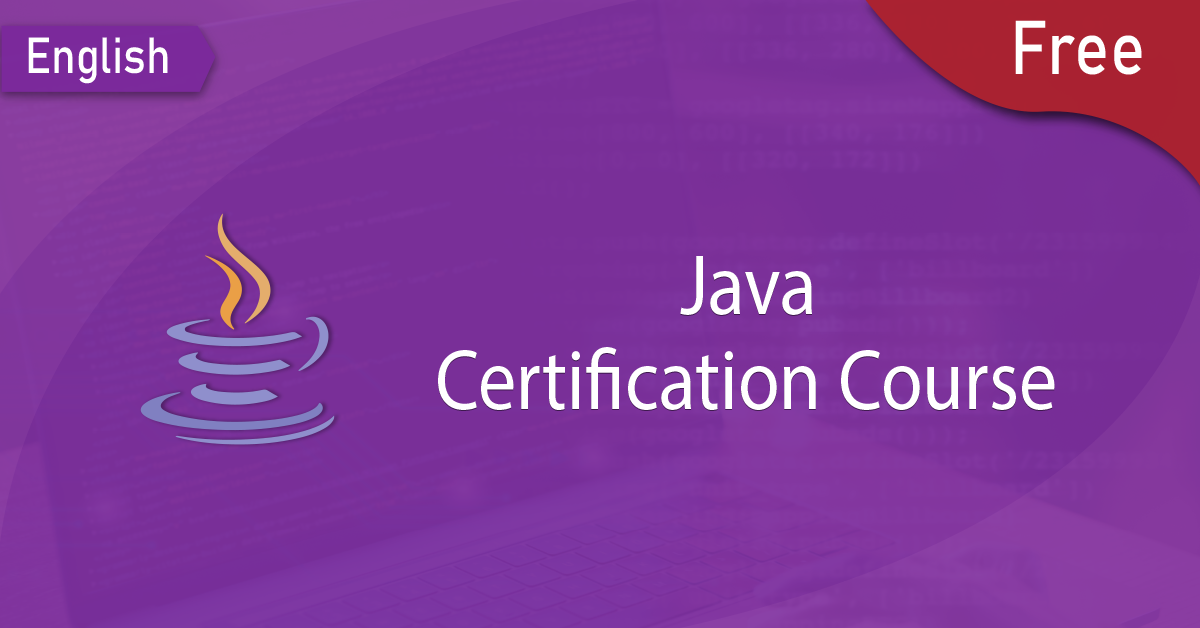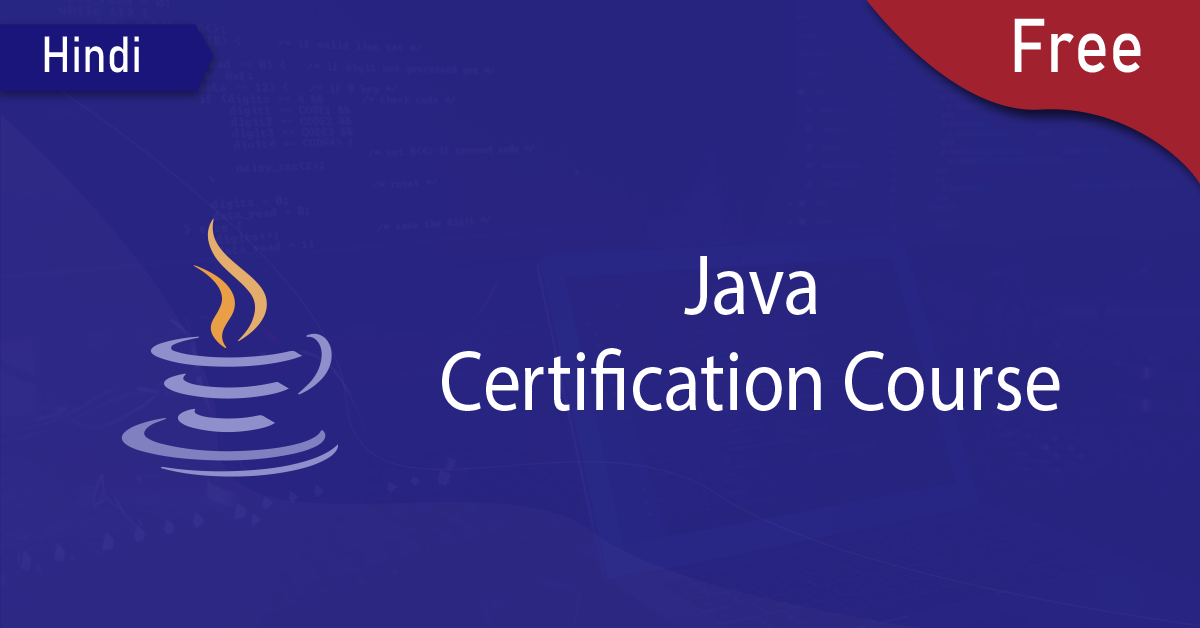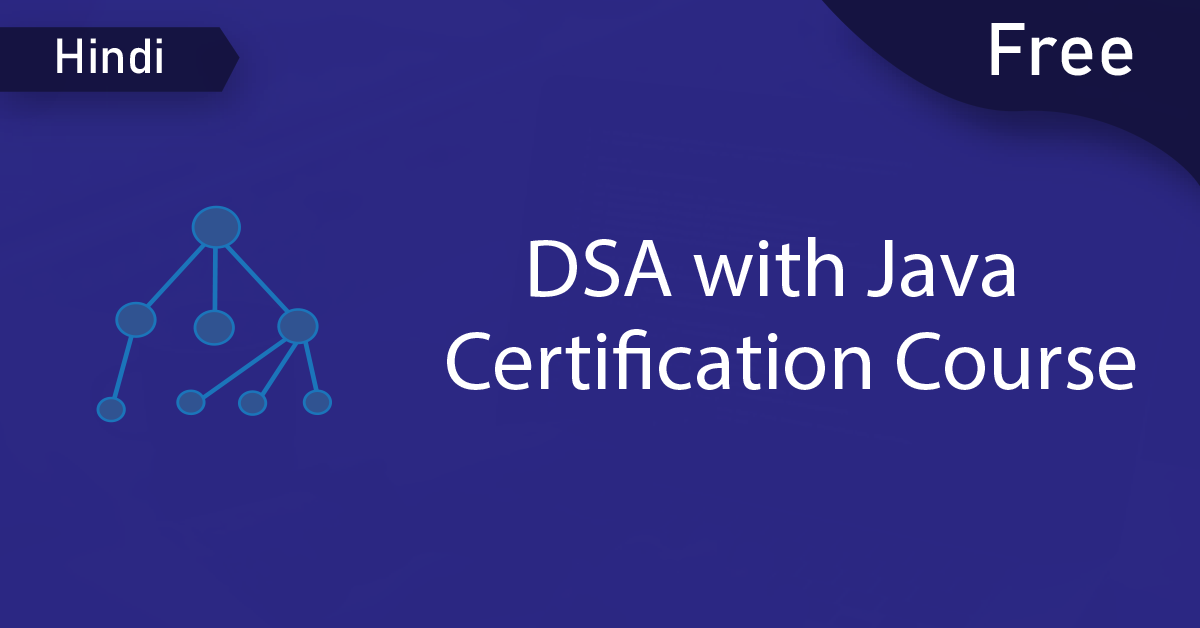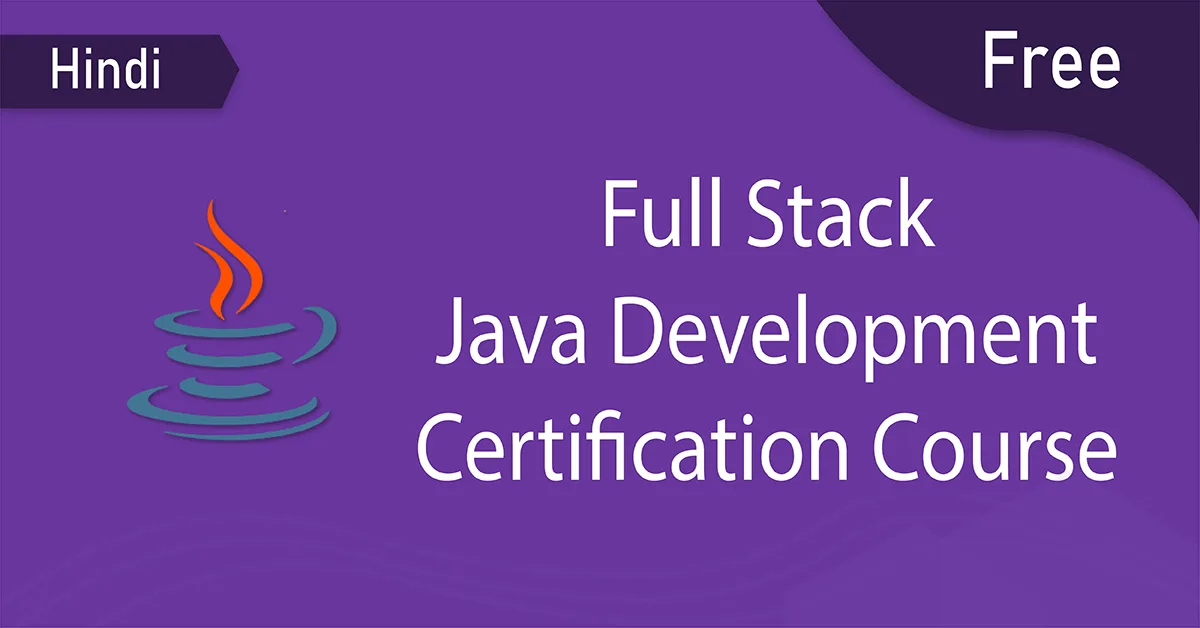Free Java Course
If you are looking to become an enterprise application developer, our free Java courses will make you ready to grab your dream job in top MNCs. We start with basics assuming you are a beginner, and practically cover all the complex concepts including frameworks, database connectivity, and multi-threading. Furthermore, Java classes provide a planned learning path to accommodate different skill levels and are designed to be accessible to both novice and seasoned programmers.
Java Courses
What is Java?
Java is a well-known and influential programming language that was first released by Sun Microsystems (now owned by Oracle Corporation) in the middle of the 1990s. It is recognized for its portability, dependability, and versatility. Platform independence is one of Java’s distinguishing characteristics; this is made possible through the Java Virtual Machine (JVM). As long as a compatible JVM is present, Java programs can run on a variety of hardware and operating systems. Java has been a top choice for developers trying to construct applications that operate flawlessly across many settings thanks to its “write once, run anywhere” flexibility.
Because of its simple syntax and resemblance to other C-based languages, Java is a reasonably simple language for programmers to learn and adapt to. It fosters the organizing of code into reusable objects, improving maintainability and scalability. This is known as object-oriented programming (OOP). The vast Java standard library offers a wide selection of pre-built classes and functions for typical tasks, significantly easing the development process.
Java is used in a wide variety of industries. Server-side programming is supported by frameworks like Spring and JavaServer Faces (JSF), making it a fundamental technology for web development. Java is also the main language for creating Android apps, which power billions of mobile devices globally. Java is appreciated in enterprise software because of its dependability and performance, making it a top option for creating complicated programs. Java is also utilized in embedded systems, scientific computing, and cloud computing, demonstrating its adaptability and significance in the current technological environment.
Why should you learn Java courses from DataFlair?
Learning Java gives both inexperienced and seasoned programmers a wealth of enticing benefits. Programming language Java is very flexible, popular, and offers a wide range of career prospects. Java is the language that powers billions of devices, including enterprise-level software, online applications, and Android apps. Your ability to create cross-platform apps will increase as a result of your knowledge of Java, making you a valuable asset in the tech sector.
Java is a great choice for beginners who wish to begin their programming journey because its syntax is also quite simple to understand. It helps you establish a firm foundation in software development by enforcing strict code standards and promoting sound programming techniques. Another benefit of Java’s object-oriented design is that it promotes code reuse and maintainability. A key paradigm in contemporary software development, object-oriented programming (OOP), is something you learn about when you study Java. Your ability to write code that is both efficient and modular, which is crucial for complex applications, is made possible by this understanding.
The sizable standard library for Java and the abundance of third-party libraries and frameworks further accelerate development, reducing time and effort. Java’s string memory management capabilities and platform independence also guarantee that your programs will function correctly and reliably on a variety of hardware and operating systems. Gaining in-demand skills and the ability to build strong, dependable software solutions are two benefits of learning Java that will benefit your career.
Training benefits of Java courses
Your programming abilities and professional prospects can be greatly improved by enrolling in a Java courses, which offers a variety of training advantages. Starting with the fundamentals and working up to more complex topics, a structured Java course offers a thorough and organized learning path. With a focus on key ideas like grammar, data types, control structures, and object-oriented programming, this systematic method makes sure you get a solid foundation in Java.
As you gain experience, you’ll learn about more advanced topics including database connectivity using Java and online and mobile app programming. Your learning and problem-solving skills will be strengthened by the actual Java projects, assignments, and coding challenges that are frequently featured in Java classes. Furthermore, Java classes frequently give students access to knowledgeable professors and a welcoming learning environment. Instructors can provide advice, respond to inquiries, and share insightful information based on their practical experience.
Students who work together on group Java projects and forums create a collaborative learning environment where they can share best practices, discuss ideas, and learn about various viewpoints. In addition, our Java courses gives students the chance to earn certifications, which can help you demonstrate to potential employers how knowledgeable you are and advance your career. Overall, taking a Java courses can hasten your progress toward mastering Java development by providing an organized, encouraging, and knowledge-enhancing environment.
Java Job Roles
One needs to understand that in this cutthroat tech market of today, learning Java has several advantages for your career. Given that Java is one of the most popular programming languages, there will always be a need for Java developers in a variety of industries, including data engineering, corporate software, web development, and the creation of mobile apps.
Java developers may work on a variety of projects thanks to its cross-platform compatibility, which makes them flexible and adaptive. Java developers also frequently receive competitive pay and lots of chances for professional advancement. Java is a rewarding choice for anyone pursuing a career in software development because of the vibrant Java community and rich documentation that offer plenty of opportunities for ongoing learning and skill improvement.
- Java Developer:
Create, manage, and optimize Java applications for a variety of uses, such as backend systems, online and mobile apps, and more, as a Java developer. Writing clear and effective Java code, identifying and resolving problems, and making sure the program complies with the requirements are their duties. - Software Engineer:
Programming languages like Java and others are used by software engineers to create, develop, and implement software solutions. In order to provide high-quality software solutions, they collaborate with cross-functional teams on projects that may require both front-end and back-end development. - Web Developer:
Web developers have their own unique set of skills for creating websites and web applications utilizing Java technologies like Servlets, JavaServer Pages (JSP), and Java frameworks like Spring. They frequently work with designers to accomplish their goal of developing intuitive and aesthetically pleasing online interfaces. - Android Developer:
Java is the primary language employed by Android developers when creating mobile applications for the Android operating system. They create and deploy Android applications, making sure each one is responsive, practical, and well-suited to various Android gadgets. - Backend Developer:
Backend developers focus on server-side programming and are responsible for managing the essential functionality and logic of web applications. In order to manage databases, build scalable and effective server components, and guarantee seamless front-to-back connectivity, they use Java. - Full-Stack Developer:
Full-stack developers are adept in both front-end and back-end programming. When creating user interfaces and enhancing the user experience generally, they frequently use Java for server-side programming and other technologies like JavaScript, HTML, and CSS. - Developers of Enterprise Java:
Developers of Java use Java EE (Enterprise Edition) technologies to create scalable and reliable enterprise-level software while they work on large-scale applications for businesses. They put their energy into developing products that address the unique requirements of enterprises and manage intricate operations. - DevOps Engineer:
DevOps engineers oversee the deployment, automation, and CI/CD (continuous integration and continuous deployment) procedures for Java applications. By frequently utilizing technologies and techniques that streamline the collaboration between development and operations, they guarantee the effective and reliable delivery of software.
Java Courses FAQs
Java is a powerful and popular programming language known for its widespread applicability across numerous disciplines and its platform freedom. It acts as the framework for building reliable enterprise software, Android mobile apps, and websites. Learning Java’s adaptability gives you abilities that are transferable to a variety of fields and jobs. The language’s key advantages are its robust memory management and security capabilities, as well as its crucial position in big data and IoT.
Many times, individual tastes and project requirements determine the ideal Integrated Development Environment (IDE) for Java. Eclipse, IntelliJ IDEA, and NetBeans are a few well-liked alternatives, nevertheless. Eclipse is well-known for its extensibility and active community support, whereas IntelliJ IDEA is praised for its sophisticated coding aid and powerful features. Another free and open-source IDE, NetBeans, is a wonderful option for novices because it has excellent Java support.
The main topics covered in Advanced Java are Servlets, that are Java-based web components for managing HTTP requests and responses, JavaServer Pages (JSP), which are used to create dynamic web pages, Java Database Connectivity (JDBC), which allows for database interaction, Enterprise JavaBeans (EJB), which are used to build scalable enterprise applications, and various Java EE technologies like Java Message Service (JMS) and Java Persistence API (JPA).
Building corporate Java applications is made easy with the help of the Spring Framework, which is comprehensive and modular. Inversion of control (IoC), aspect-oriented programming (AOP), support for data access and transaction management, and a variety of application components are some of its key features. By encouraging a loosely connected and highly tested code structure, Spring streamlines the application development process.











